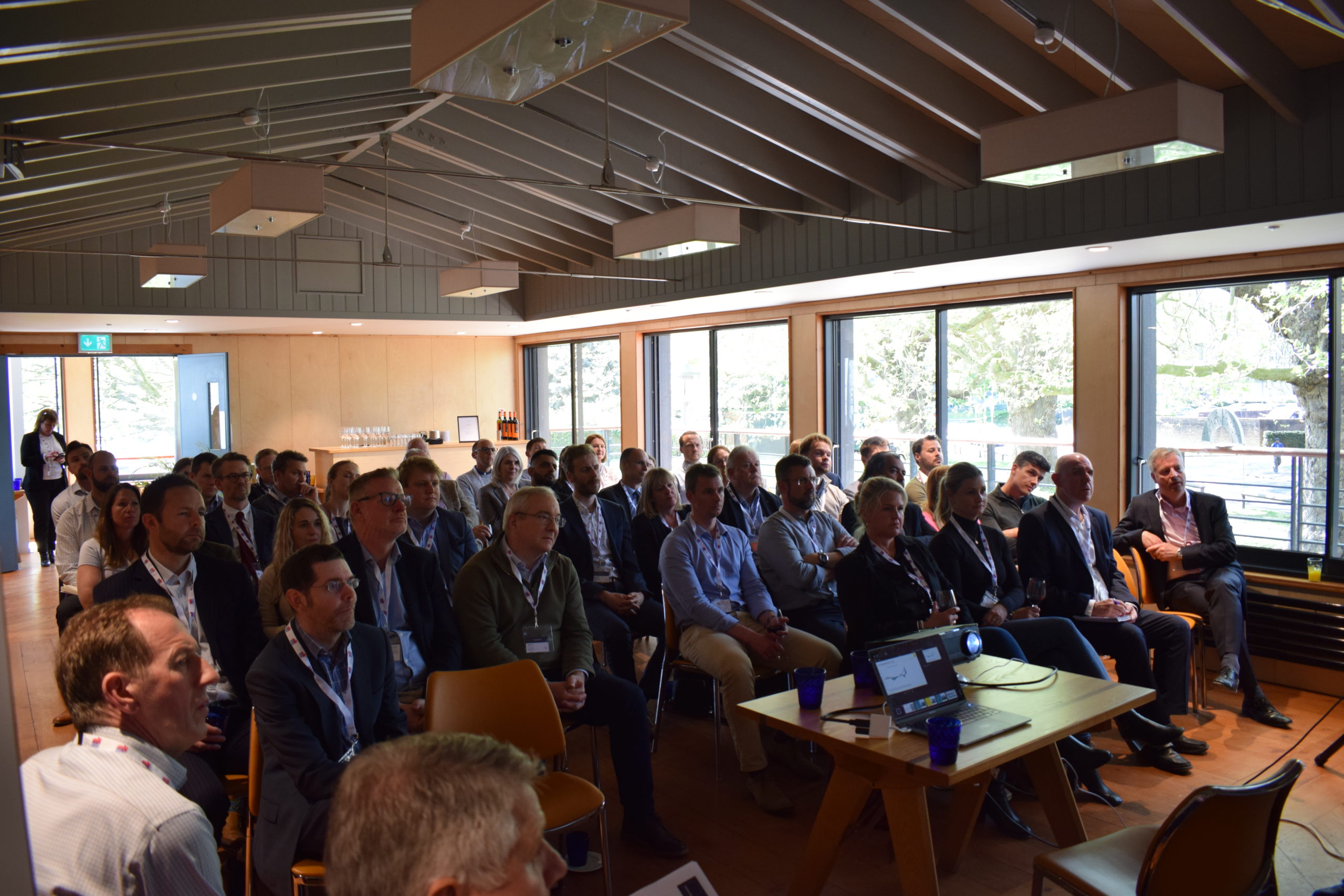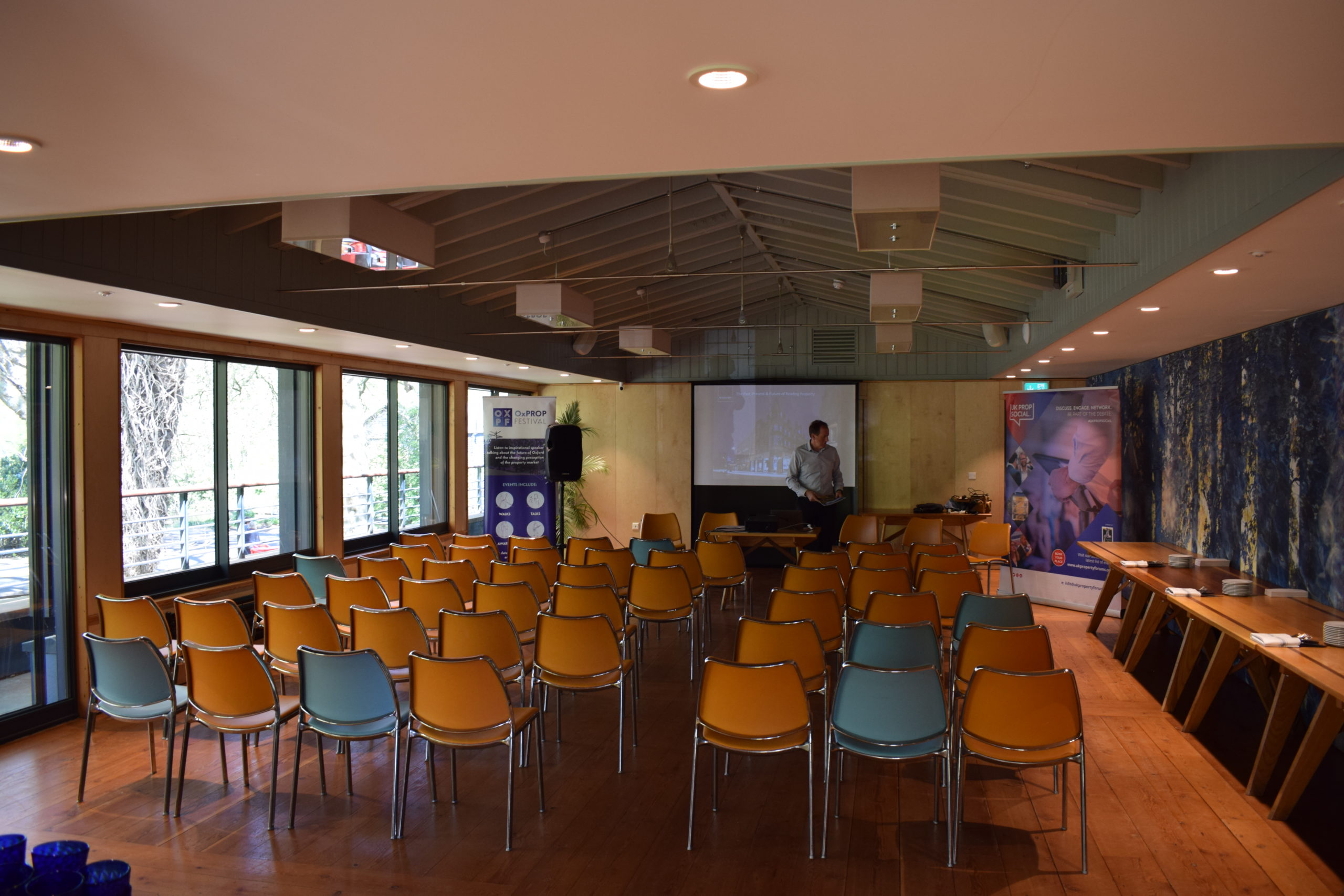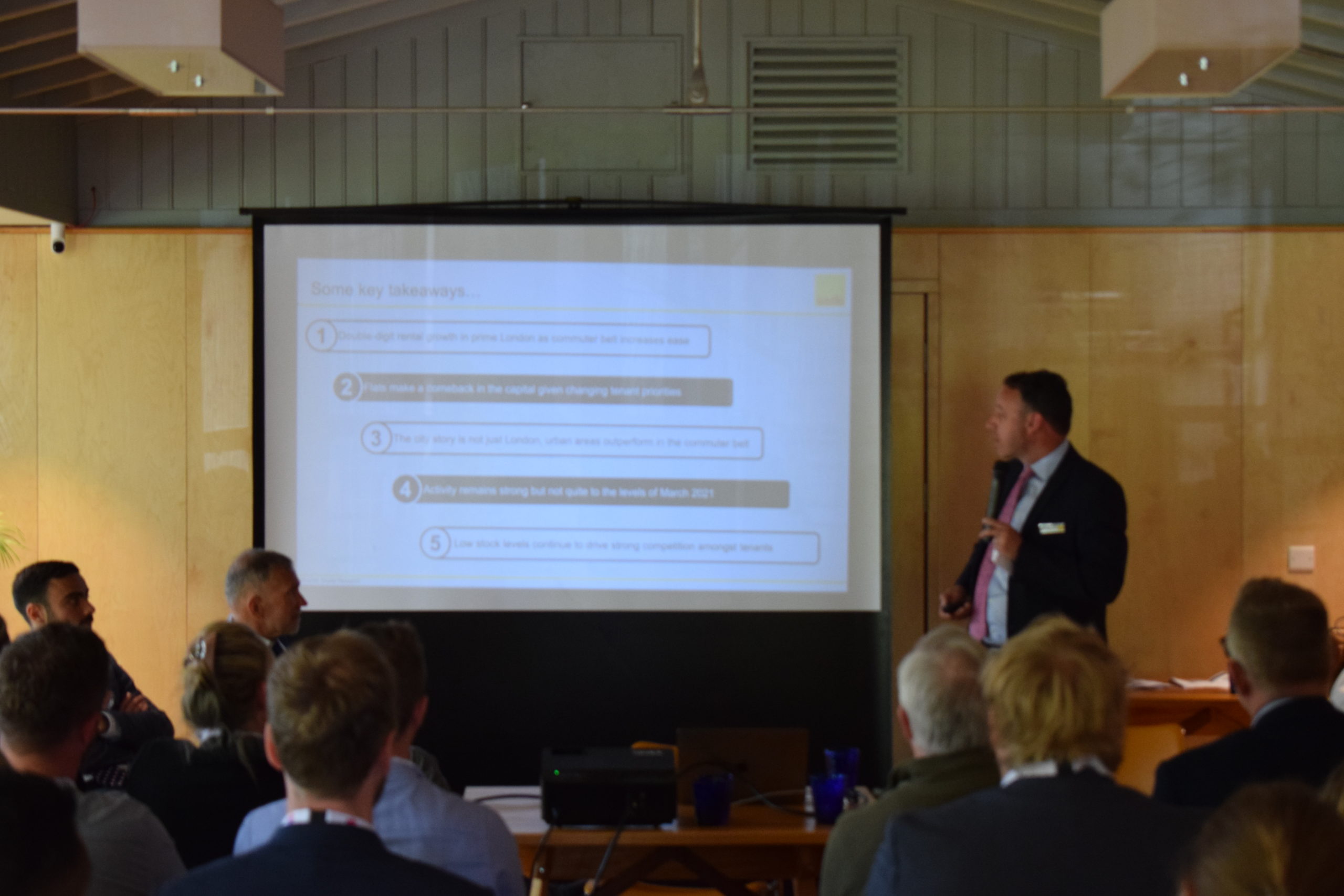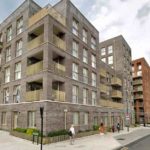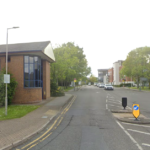High demand for housing and limited stock is leading to soaring land prices, competing buyers and some developers considering halting sales so their building work can catch up.
Delegates at the Reading Social event on April 26 at Thames Lido, a special on the local housing market, heard the experiences of experts from Savills, Darcliffe Homes, Haslams and Jansons Property.
Gordon Hood, director of residential for Savills in Reading, said the town is outperforming the rest of the commuter belt for popularity and low levels of stock are driving competition.
He added: “Huntley Wharf apartments hit the market very recently and we’ve had an apartment there where we’ve had three different people fighting over it.
“It just shows you the demand for a good product and clearly Berkeley’s product is very exceptional. So, unless there’s suddenly an influx of stock or something else happens in our world, that competition is going to continue.”
Jonny Denton, sales manager for Darcliffe Homes, the residential wing of Country Estates, told the meeting an overwhelming number of potential buyers hit the market in February 2021 without the housebuilder having to do any marketing. That led to homes being sold up to a year ahead of completion.
However, delays in getting materials including sanitary ware, were experienced which created a need to manage expectations.
But he added: “Fortunately everyone has been understanding and determined to wait. I’ve been more of a handholder.”
During the delays one buying couple, waiting to buy a Darcliffe home, managed to cancel the sale of their existing property, then months later sell it for £60,000 more while Darcliffe held the price of their new home.
The situation, he said, is driving up the price of land.
He went on: “I’m relatively new to the land buying world but it’s always been a dogfight and right now it’s brutal. Given some of the prices we are seeing sites go for, I can’t see how it’s sustainable or viable. I can’t help but feel there are some risks being taken.”
Land buying, he noted, suffered the same problems of surging demand after lockdown.
“Buying land is the real challenge for us as a business. I think everyone sat on their hands when Covid hit, then you’ve got planning departments that all went to work from home, which delayed planning decisions.
“Sensible planning decisions aren’t that frequent anyway and it’s caused a mass demand to buy land and get on with it because the market is so strong. Everyone is trying to buy at the same time and there’s not a lot of readily available land.”
Steve Woodford, managing director of Haslams Estate Agent, illustrated the change in the types of buyers since 2012. At that time 70-90 per cent were private investors. However, Government investments like Stamp Duty holidays and Help-to-Buy have helped bring about a massive swing back to owner occupiers.
Factors driving the market, he said, include pent-up demand after Covid, flexible lending, low interest rates despite some rises, desire for wellbeing and improved lifestyles – and the fact many first-time buyers had saved deposits during lockdown.
He added: “A lot of the developers we are talking to are so far forward-sold, we’ve had talks with a few of our clients who are actually talking about shutting up shop on sales for two or three months, to allow the build to catch up.”
The trend towards Build-to-Rent (BTR) has contributed to the lack of stock to buy. Haslams has only one apartment within Reading’s Inner Distribution Road, for sale. In the next three years 1,800 BTR flats will complete in Reading town centre and beyond 2024 there are likely to be around 4,000 in total.
Andy Jansons, managing director of Jansons Property, said land is in such short supply that sites for employment uses are being sold for more than those for residential, even though there are no Government targets for the amount of employment space like those for housing.
He said: “What we are finding is it (rising prices) is not only happening with residential land, we are now finding some of the business space land is outbidding residential.”
High density in town centres, such as in Reading, he said, is needed for many residential schemes to be viable.
He added: “In the Thames Valley we seeing £3 million an acre now for brownfield land. Some industrial estates are worth more than resi.”
One Jansons site in West Oxfordshire, earmarked for 200 homes, is attracting interest from large pension funds interested in family housing.
The lunchtime event, hosted by UK Property Forums managing director Matthew Battle, attended by more than 50 property professionals, marked the launch of the Thames Tap New Homes section. The panel was made up from Thames Tap sponsors.
Top image (l-r): Jonny Denton, Steve Woodford, Matthew Battle, Andy Jansons and Gordon Hood.
See below for the gallery from the event.
© Thames Tap (powered by ukpropertyforums.com).
Sign up to receive your free weekly Thames Tap journal here.








